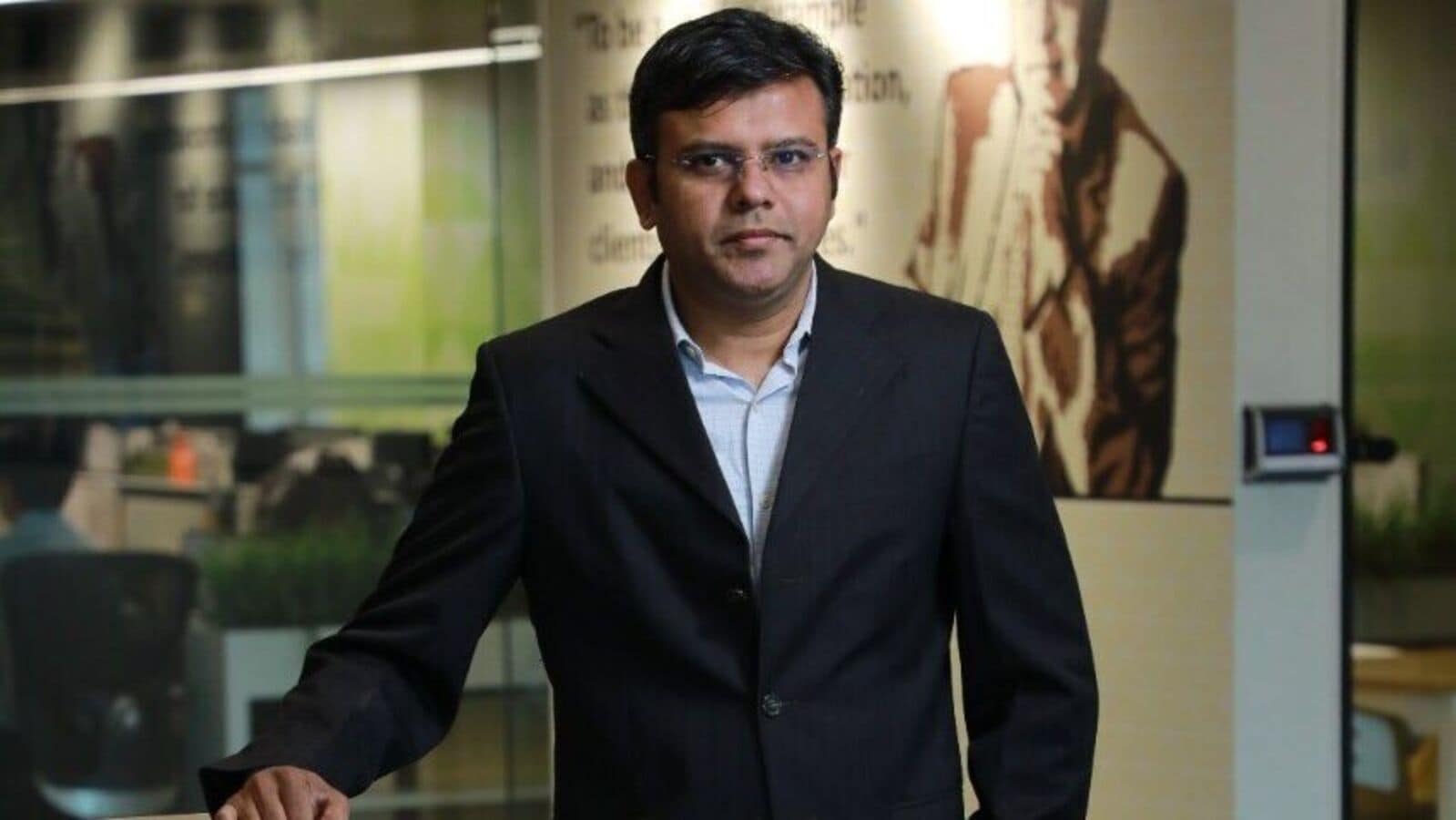[ad_1]
For Maibam Nirbuala Devi, financial literacy came too late. Together with her family, she invested ₹48 lakh in a local scheme promising 5% monthly returns—only to find out it was a Ponzi scam.
“In channels around here, the ads were about the schemes I invested in,” said Devi, who now faces mounting family tensions over the lost money. “My friends talked about them, and their ads popped up frequently.”
Now, the scam operator is in jail, and her money is gone.
Read this | India’s stock market rally looks like a self-sustaining Ponzi scheme
Manipur has the lowest mutual fund penetration in India. Here, informal chit funds—known as marup—and high-return unregulated deposit schemes dominate investment conversations. Devi knows the difference now—but with her savings wiped out, investing in mutual funds is no longer an option.
Her case is far from unique. According to the Enforcement Directorate (ED), the scheme Devi invested in collected ₹580 crore from depositors. For perspective, the entire mutual fund industry in Manipur holds just ₹1,600 crore in assets. One Ponzi scheme alone is believed to have raised ₹2,000 crore, defrauding thousands, including homemakers and rickshaw pullers.
A state trapped in financial illiteracy
The problem runs deeper than misplaced trust. A Crisil report ranks Manipur as having the lowest financial literacy among India’s small states. But efforts to fix this remain insufficient.
Regulators and asset management companies (AMCs) have conducted 43,826 investor awareness programmes nationwide. Manipur accounted for just 21. Even when awareness events are held, they are often in English or Hindi—languages few locals understand.
“Many of these events were useless here,” said a mutual fund distributor (MFD) who requested anonymity.
This knowledge gap translates into staggering disparities in investment behaviour. The average Manipur investor puts just ₹4,970 into mutual funds—compared to ₹2.21 lakh in Mumbai and ₹2.72 lakh in Delhi. As a percentage of GDP, Manipur ranks second-lowest in mutual fund participation.
A shrinking pool of mutual fund distributors
Toijam Meitei, among the few mutual fund distributors in Manipur, says most locals prefer chit funds, real estate, and traditional banking products over mutual funds. The 2008-09 market crash and the Securities and Exchange Board of India’s (Sebi) ban on upfront commissions led many MFDs to exit the business.
Read this | This 23-year-old distributor is making mutual funds ‘sahi’ for the hearing impaired
“I have around 800 clients, most investing ₹2,000 to ₹10,000 per month in SIPs,” said Meitei. But the ongoing communal violence has put even this at risk. “Many have paused fresh SIPs, but thankfully, most haven’t redeemed their investments.”
For Romen Ningthoujam, operations head of Aspire Alive Alpha Ltd, the only corporate MFD in Manipur, mutual fund distribution alone doesn’t generate enough revenue. His firm relies on stockbroking and insurance to stay afloat.
The only Sebi-registered investment advisor (RIA) in Manipur told Mint that he has zero clients.
Scams in absence of regulated players
Unregulated players dominate stock market investments in Manipur. Khwairakpam Umananda, a 28-year-old pig farm owner, invested ₹10 lakh in a non-Sebi registered entity that promised 7% monthly returns through stock market trading.
He realized it was a scam only after an FIR was filed against the scheme’s operator, who had amassed luxury cars and bikes before vanishing.
The person absconded after getting bail and is nowhere to be found, Umananda said. He and about 5,000 others are still waiting to recover their money.
While some locals do invest in regulated products, most prefer going through banks, where they are often mis-sold insurance schemes disguised as investments, said Meitei, a mutual fund distributor.
To be sure, selling insurance earns far higher commissions than mutual funds.
“I had a young client walk into my office, thinking he had invested in mutual funds,” Meitei recalled. “But when I checked, it was actually a ULIP. In tough economic times like these, you can pause or redeem a mutual fund investment—but if your money is in a ULIP, you’re stuck.”
What should the authorities do?
Mutual fund distributors believe asset management companies must step up local-language advertising to build trust among Manipur’s investors.
“When you see unregulated schemes dominating local media instead of regulated products, people start trusting them,” said Ningthoujam. “If AMCs advertised in local channels or newspapers—especially during festivals like Cheirouba or Yaoshang—it could shift investor confidence toward legitimate financial products.”
Read this | Small-cap funds face a higher liquidity risk, show latest stress test
Another major hurdle is the absence of AMC and Registrar & Transfer Agent (RTA) branches in Manipur.
Meitei, a mutual fund distributor, said he onboards most clients via physical forms and cheques since many investors are not tech-savvy. Each new client’s Know Your Customer (KYC) documents and cheques must be sent to Guwahati, adding delays and logistical challenges.
While mutual fund onboarding can be done online, updating old KYCs or transferring units after an investor’s death still requires physical paperwork.
“It’s not just about submitting forms,” Ningthoujam pointed out. “People here trust financial services more when they can walk into an office and resolve issues face to face.”
Investor education efforts have also stagnated.
Ningthoujam noted that the last Sebi-led investor awareness programme in Manipur—organized in partnership with AMCs like Nippon and HDFC—was before the pandemic. Since then, no such initiatives have taken place.
Also read | How India’s youngest pension fund gamed a falling market to outdo its older rivals
Meanwhile, a recent Association of Mutual Funds in India report highlights that women in India’s northeast play an active role in financial decision-making. But many have now suffered severe financial setbacks due to investments in fraudulent schemes.
Despite this, there has been little government effort to educate the public on the risks of unregulated investments.
[ad_2]
Source link





